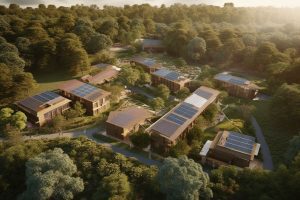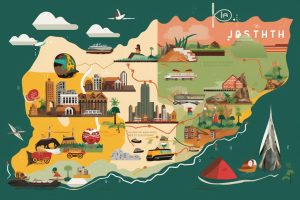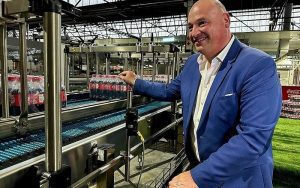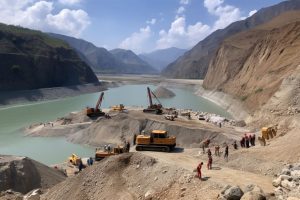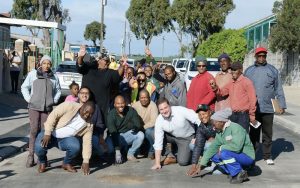The Western Cape’s tourism industry has shown impressive resilience amidst the pandemic. The sector has surpassed prepandemic levels of tourist arrivals, playing a vital role in job creation in the region. Cape Town International Airport (CTIA) has experienced significant growth in international twoway passengers, exceeding prepandemic levels by 104%. The Mother City’s recovery has outpaced the rest of South Africa, indicating a brighter future for Western Cape tourism.
In recent times, the Western Cape’s youth have been in the limelight. Premier Alan Winde proudly highlights the government’s dedication to empowering young talent. During a digital conference, six individuals who are a part of various Western Cape Government (WCG) programs shared their dreams and how these initiatives have played a significant role in their lives.
The South African government and organized business have joined forces to address critical economic challenges and promote inclusive growth and job creation. This groundbreaking collaboration involves the CEOs of the country’s largest companies, who are committed to pooling their skills and resources to tackle key priorities.
Western Cape’s R5 Million Export Booster Fund: A Major Step Towards Economic Growth and Job Creation
The Western Cape Government’s Department of Economic Development and Tourism has launched the Export Competitiveness Enhancement Programme (ECEP) to support businesses working towards export readiness and expand their presence in international markets. This move aims to boost economic growth and create employment opportunities, which aligns with the provincial Growth for Jobs Strategy.
The Eastern Cape Department of Public Works and Infrastructure (DPWI) has announced its transformative infrastructure development agenda, aimed at fostering hope and resilience amid socioeconomic challenges. With a budget of R2.5 billion for the 2023/24 financial year, the DPWI intends to become a ‘nerve centre’ for infrastructure development, delivery, coordination, and investment in the Eastern Cape.
The Tshwane City Centre has been facing various challenges over the years, including urban decay and socioeconomic issues. However, the Department of Public Works and Infrastructure’s Salvokop mixeduse precinct development project aims to revitalize the city’s core and create an integrated, accessible environment for all its residents.
In October 2020, President Ramaphosa launched Operation Vulindlela to accelerate the implementation of 35 priority reforms that would impact economic growth and job creation. This initiative has played a crucial role in driving necessary structural reforms across key sectors such as energy, logistics, digital communication, water, and visas.
A cityfunded programme in Cape Town is assisting small and mediumsized enterprises (SMEs) in the clothing and textile sector. Aimed at training businesses to unlock procurement opportunities and establish lasting supply relationships, the initiative is already on track to sign new contracts with large retailers.
South Africa’s tourism industry, a major contributor to the country’s economy, has been hit hard by the COVID19 pandemic. However, the government has been making efforts to boost the industry and help it recover. One such measure is the Tourism Sector Recovery Plan, launched in May 2020, which aims to recover the sector and create jobs.
South Africa has been struggling with high unemployment rates for a long time, which have only been further exacerbated by the COVID19 pandemic. To combat this issue, the government has made job creation a priority in its economic recovery plan. One sector with tremendous potential for employment is the construction industry, and the Ministry of Public Works and Infrastructure is leading the charge in transforming the country into a bustling construction site.
The Western Cape has been facing significant energy challenges, including load shedding, high energy costs, and an overreliance on fossil fuels. To address these issues, the government has been actively exploring alternative energy sources, with a particular focus on green hydrogen.
The South African Department of Public Works and Infrastructure is contributing to the country’s economic recovery and job creation. For the 2023/24 financial year, the department has been allocated R8.782 billion, with R4.5 billion earmarked for infrastructure, property management, facilities, and asset management.
Cape Town, South Africa’s vibrant business landscape, is a testament to the city’s commitment to business growth and innovation. Recently, CocaCola Peninsula Beverages expanded its operations, introducing a new production line. This expansion highlights the potential for significant job creation and economic growth in the region. The investment of over R200 million demonstrates the company’s confidence in Cape Town’s thriving business environment and the mutually beneficial partnership between CocaCola Peninsula Beverages and the City.
As South Africa commemorates Africa Month, it is an opportunity to reflect on the country’s strides in building a united, nonracial, nonsexist, and prosperous society. Among the key areas where progress has been made is infrastructure development, spearheaded by the Department of Public Works and Infrastructure (DPWI) under the stewardship of Minister Sihle Zikalala.
The Lesotho Highlands Water Project (LHWP) is an ambitious infrastructure project that aims to address the water needs of South Africa’s most populous province, Gauteng, by tapping into the water resources of neighboring Lesotho. ## Phase II: Construction and Progress
Cape Town is taking a proactive stance on improving its infrastructure, with Mayor Geordin HillLewis leading the charge on a comprehensive sewer pipe replacement project. This critical upgrade aims not only to support economic growth but also to create a healthier and more dignified living environment for all residents of the city.






